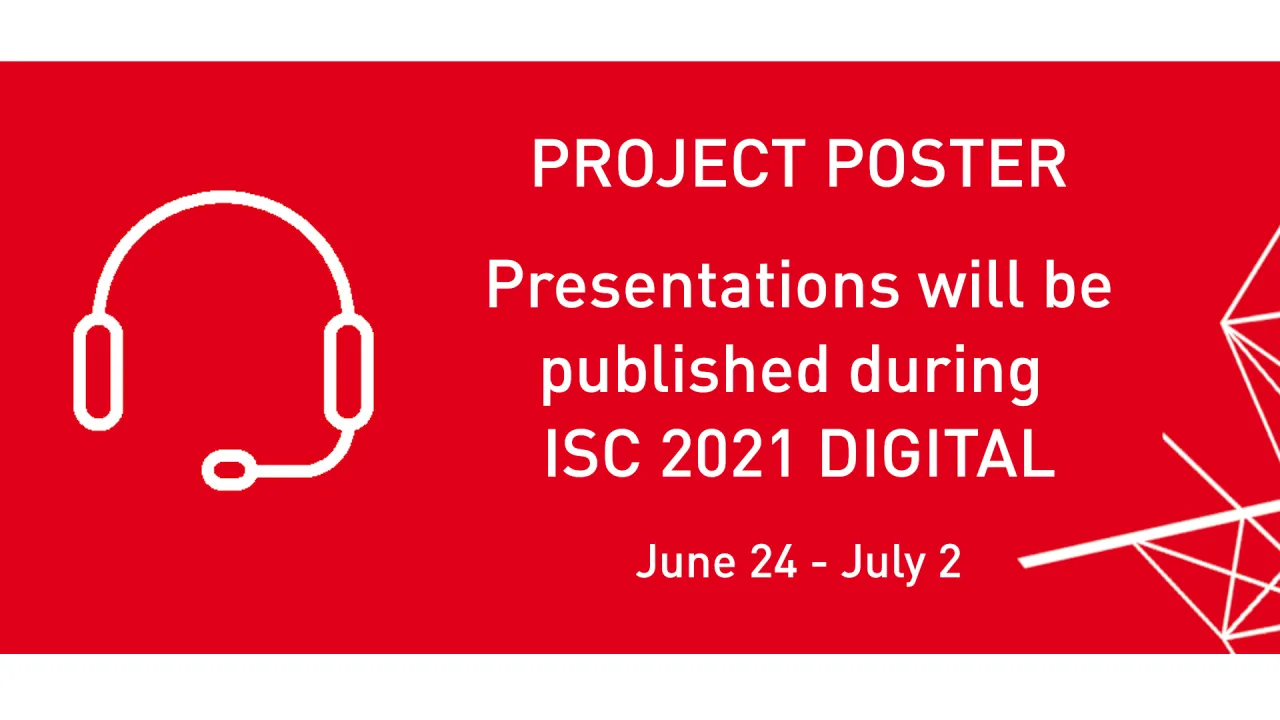

Scalable Numerical Method for Biphasic Flows in Heterogeneous Porous Media in High-performance Computational Environments
Only 125 seats left
Wednesday, June 30, 2021 3:00 PM to 4:00 PM · 1 hr. (Africa/Abidjan)
Exascale Systems
Information
Contributors:
Abstract:
This project aims to develop a scalable numerical approach for biphasic flows in heterogeneous porous media in high-performance computing environments based on the high-performance numerical methodology. In this system, an elliptical subsystem determines the velocity field, and a non-linear hyperbolic equation represents the transport of the flowing phases (saturation equation). The model applies a locally conservative finite element method for the mixing speed. Furthermore, the model employs a high-order non-oscillatory finite volume method, based on central schemes, for the non-linear hyperbolic equation that governs phase saturation. Eight modules comprise the Fortran code, which contains a variety of mathematical and physical features. Specifically, the project aims to build scalable codes for a high-performance environment. Identified the bottlenecks in the code, we are now working in four different research areas. We need to implement parallel I/O routines and high-performance visualization to decrease the I/O transfers bottleneck. We need to perform parallel programming to reduce code bottlenecks for multicore and manycore architectures. We also need to employ the Adaptive MPI standard to decrease the message communication bottleneck. The poster presents the first performance evaluation results used to guide the project research areas. This endeavor is a multi-disciplinary project requiring expertise from several knowledge areas from four research institutes (LNCC, UFRGS, UFLA in Brazil, and CENAT in Costa Rica). Finally, Brazilian funding agencies (CNPQ, CAPES) and the RISC-2 project from the European Economic and Social Committee (EESC) support the project.
- Marcio Borges (National Laboratory of Scientific Computing)
- Frederico Cabral (National Laboratory of Scientific Computing)
- André R. Carneiro (National Laboratory of Scientific Computing)
- Sanderson L. Gonzaga de Oliveira (Federal University of Lavras)
- Esteban Meneses (National High Technology Center)
- Philippe Olivier Alexandre Navaux (Informatics Institute/Federal University of Rio Grande do Sul)
- Carla Osthoff (National Laboratory of Scientific Computing)
- Weber Ribeiro (National Laboratory of Scientific Computing)
- Matheus Serpa (Federal University of Rio Grande do Sul (UFRGS))
- Thiago Teixeira (National Laboratory of Scientific Computing)
- Stiw H. Taipe (National Laboratory of Scientific Computing)
Abstract:
This project aims to develop a scalable numerical approach for biphasic flows in heterogeneous porous media in high-performance computing environments based on the high-performance numerical methodology. In this system, an elliptical subsystem determines the velocity field, and a non-linear hyperbolic equation represents the transport of the flowing phases (saturation equation). The model applies a locally conservative finite element method for the mixing speed. Furthermore, the model employs a high-order non-oscillatory finite volume method, based on central schemes, for the non-linear hyperbolic equation that governs phase saturation. Eight modules comprise the Fortran code, which contains a variety of mathematical and physical features. Specifically, the project aims to build scalable codes for a high-performance environment. Identified the bottlenecks in the code, we are now working in four different research areas. We need to implement parallel I/O routines and high-performance visualization to decrease the I/O transfers bottleneck. We need to perform parallel programming to reduce code bottlenecks for multicore and manycore architectures. We also need to employ the Adaptive MPI standard to decrease the message communication bottleneck. The poster presents the first performance evaluation results used to guide the project research areas. This endeavor is a multi-disciplinary project requiring expertise from several knowledge areas from four research institutes (LNCC, UFRGS, UFLA in Brazil, and CENAT in Costa Rica). Finally, Brazilian funding agencies (CNPQ, CAPES) and the RISC-2 project from the European Economic and Social Committee (EESC) support the project.



